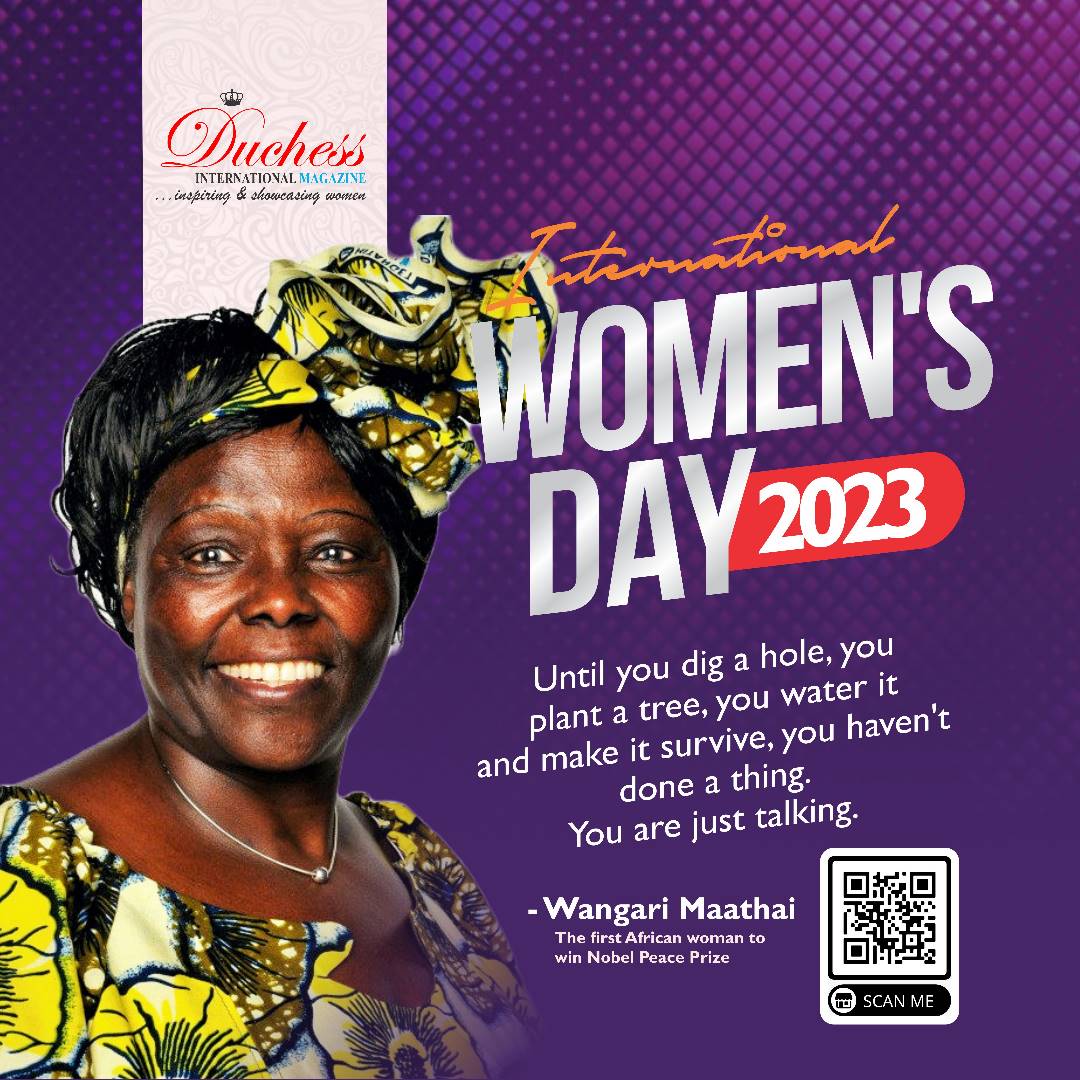Wangarĩ Muta Maathai, born on April 1, 1940, was an inspiring Kenyan woman whose trailblazing work as a social, environmental, and political activist is still celebrated today. As the first African woman to win the Nobel Peace Prize, Maathai’s life serves as an inspiration to women everywhere who want to make a difference in their communities and beyond.
Maathai’s academic achievements were remarkable, especially during a time when it was challenging for women to obtain a higher education. She earned a Bachelor’s degree from Mount St. Scholastica and a Master’s degree from the University of Pittsburgh in the United States. She became the first woman in East and Central Africa to receive a Ph.D. in veterinary anatomy, which she obtained from the University of Nairobi in Kenya.
In 1977, Maathai founded the Green Belt Movement, a non-governmental organization that aimed to promote environmental conservation, tree planting, and women’s rights. The organization empowered women in rural areas by teaching them the value of planting trees and the importance of environmental conservation. The Green Belt Movement also gave women the opportunity to participate in public policy decision-making by encouraging them to be involved in government and community initiatives.
Maathai’s work did not go unnoticed, and in 1984, she was awarded the Right Livelihood Award for converting the ecological debate in Kenya into mass action for reforestation. Her advocacy for environmental conservation led to her being elected as a member of the Parliament of Kenya in 2002. From January 2003 to November 2005, she served as Assistant Minister for Environment and Natural Resources in the government of President Mwai Kibaki.
Beyond her activism, Maathai was also a prolific author who contributed significantly to the field of ecology, development, gender, and African cultures and religions. Her books include “The Green Belt Movement: Sharing the Approach and the Experience,” “Unbowed,” and “Replenishing the Earth: Spiritual Values for Healing Ourselves and the World.” Her intellectual contributions to these areas continue to inspire and inform new generations of African activists.
Maathai’s life was not without challenges. She passed away in 2011 from ovarian cancer. However, her legacy lives on, and her work continues to be celebrated worldwide. Maathai’s life is a testament to the importance of standing up for what is right, even when it is not popular, and the importance of working together to create meaningful change.
Maathai’s early life was marked by resilience and perseverance. She grew up in a small village in Kenya and attended St. Cecilia’s Intermediate Primary School, a boarding school at the Mathari Catholic Mission in Nyeri. During this time, she became fluent in English and converted to Catholicism. After completing her studies at St. Cecilia’s in 1956, she was granted admission to the only Catholic high school for girls in Kenya, Loreto High School in Limuru. Maathai excelled in her studies and went on to earn a scholarship to study at Mount St. Scholastica College in Atchison, Kansas.
Maathai’s studies in the United States were her first exposure to environmental restoration, where she witnessed local environmentalists’ efforts to rid the city of air pollution. She received her Bachelor of Science degree in biology, with minors in chemistry and German, from Mount St. Scholastica in 1964. Maathai then studied at the University of Pittsburgh, where she received her Master’s degree in biology. Her graduate studies were funded by the Africa-America Institute.
Maathai was then named an assistant minister for environment and natural resources in the Kenyan government in January 2003, and she used her position to push for the protection of the environment and natural resources in Kenya. In this role, she worked to address deforestation and promote reforestation, as well as to promote the use of renewable energy sources. She also fought against illegal land grabbing and advocated for the rights of local communities and indigenous peoples.
Throughout her life, Maathai remained committed to promoting gender equality and women’s empowerment. She believed that women’s participation in environmental activism was crucial and often stated that “you cannot protect the environment unless you empower people, you inform them, and you help them understand that these resources are their own, that they must protect them.” As the founder of the Green Belt Movement, Maathai worked to empower women in Kenya by providing them with education and training on environmental issues and encouraging them to become environmental stewards in their communities.
Maathai’s legacy continues to inspire and motivate people around the world to work towards environmental conservation and social justice. In 2019, a forest in her honor, the Wangari Maathai Forest, was established in Kenya. Her life’s work has been recognized with numerous awards and honors, including the Nobel Peace Prize in 2004, the Africa Prize for Leadership for the Sustainable End of Hunger in 1991, and the United Nations Environment Programme’s Global 500 Roll of Honour in 1992.
Wangarĩ Muta Maathai was a remarkable woman who dedicated her life to environmental conservation, women’s empowerment, and social justice. As the founder of the Green Belt Movement, she planted millions of trees, empowered women in Kenya, and fought against environmental degradation and political corruption.
Maathai’s work has had a profound impact on Kenya and the world, inspiring countless individuals to take action to protect the environment and promote social justice. Her legacy serves as a testament to the power of grassroots activism and the importance of empowering individuals and communities to take action and create change. As we celebrate International Women’s Day, we honor Maathai’s life and work, and we are reminded of the importance of uplifting and empowering women in the fight for a more just and sustainable world.
.
Joseph Omoniyi
https://twitter.com/Ola_josef?t=mFqIqPFZ07cIvBVM8-88lw&s=09
https://www.facebook.com/omoniyi.babasoro



